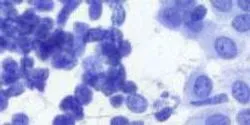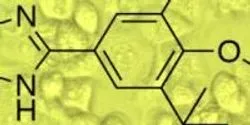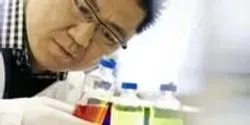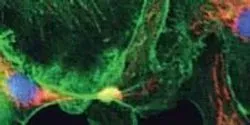Cancer Research

A commonly-used HIV drug has been shown to kill-off the human papilloma virus (HPV) that leads to cervical cancer in a world-first clinical trial led by The University of Manchester with Kenyatta National Hospital (KNH) in Nairobi.

A team of researchers at Chalmers University of Technology has found that kidney cancer cells have a quite different metabolism than other types of malignancies. The findings pave the way for new methods of diagnosing kidney cancer at an early stage, a feat that had eluded researchers earlier, and thereby fresh approaches to treatment.

University of Adelaide research has shown for the first time that grape seed can aid the effectiveness of chemotherapy in killing colon cancer cells as well as reducing the chemotherapy's side effects.

Scientists Invent Breakthrough Approach to Quickly Identify New Drug Candidates from Genome Sequence
As proof-of-principle, the team designs potent anti-cancer compound.

Dartmouth researchers have developed a protocol that permits cells harvested from melanoma tumors in mice to grow readily in cell culture. Their findings were published in an article, Multiple murine BRafV600E melanoma cell lines with sensitivity to PLX4032, in the January 25, 2014 issue of Pigment Cell & Melanoma Research.

A team of researchers at the University of Toronto has discovered a method of assembling “building blocks” of gold nanoparticles as the vehicle to deliver cancer medications or cancer-identifying markers directly into cancerous tumors.













